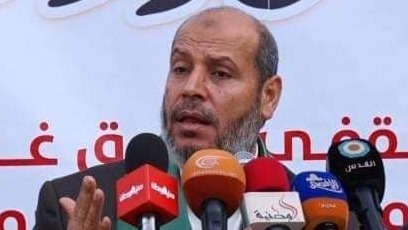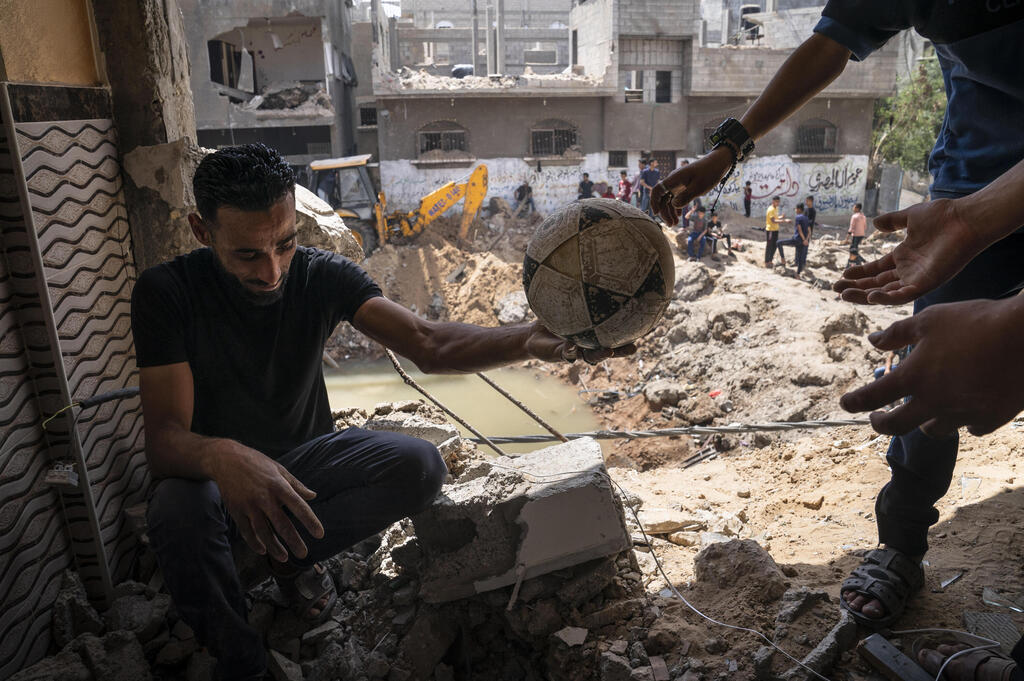Getting your Trinity Audio player ready...
A senior Hamas official said Monday that Israel must halt its “aggression” in both Gaza and Jerusalem if it wants calm following an 11-day war earlier this month.
Khalil al-Haya spoke after meeting with Egyptian intelligence chief Abbas Kamel, as Egypt embarked on a flurry of diplomacy aimed at shoring up the May 21 ceasefire it brokered.
5 View gallery
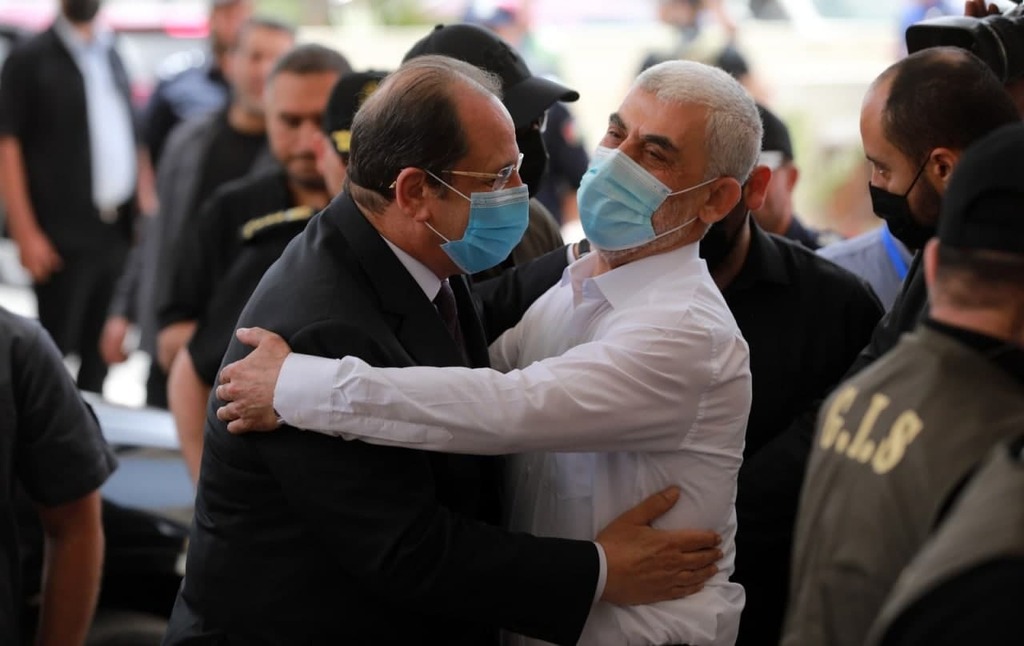

Egyptian intelligence chief Kamel Abbas, left, embraces Hamas leader Yahya Sinwar at a meeting in Gaza on Monday
(Photo: TPS)
Kamel was in Gaza after a day after talks with Prime Minister Benjamin Netanyahu in Jerusalem and a meeting between Foreign Minister Gabi Ashkenazi and his Egyptian counterpart Sameh Shoukry in Cairo.
The intelligence chief, who has not yet made any public statements, is the highest-ranking Arab official to visit Gaza since 2018, where he also met with Yahya Sinwar, the most senior Hamas leader in the Strip.
5 View gallery
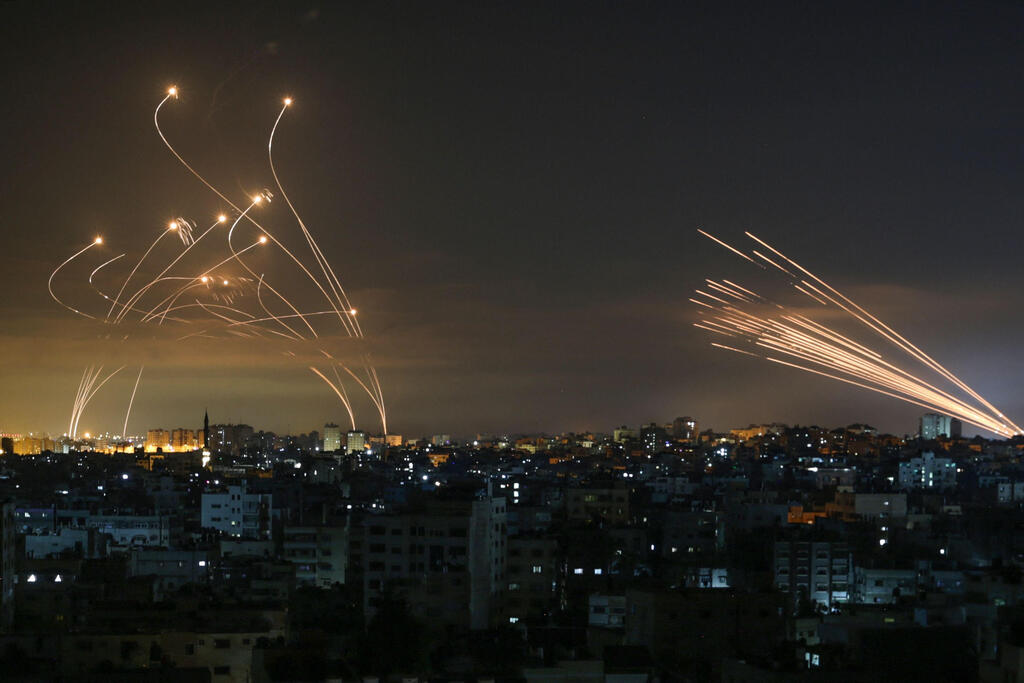

Iron Dome activates in southern Israel as rockets are fired from Gaza during the 11-day war in May 2021
(Photo: AFP)
The war was triggered when Hamas fired a volley of rockets at Jerusalem on May 10, following weeks of protests and clashes in the capital over Israeli policing and efforts to evict Palestinian families from their homes in the East Jerusalem neighborhood of Sheikh Jarrah.
Eleven days of intense rocket attacks on Israel and IDF strikes in Gaza followed. More than 250 people were killed, the vast majority of them Palestinians living in Hamas-ruled Gaza.
Israel says dozens of Palestinians were killed when Hamas rockets misfired, which the terror group denies.
“We discussed several [issues], most importantly the necessity to oblige the occupation to stop its aggression on Gaza, Jerusalem, Sheikh Jarrah and all over Palestine,” al-Haya told reporters.
He said Israel must also fully lift the blockade it imposed on Gaza when Hamas seized power from the rival Fatah movement in 2007.
“If this happens, then calm and stability could return,” he said.
5 View gallery
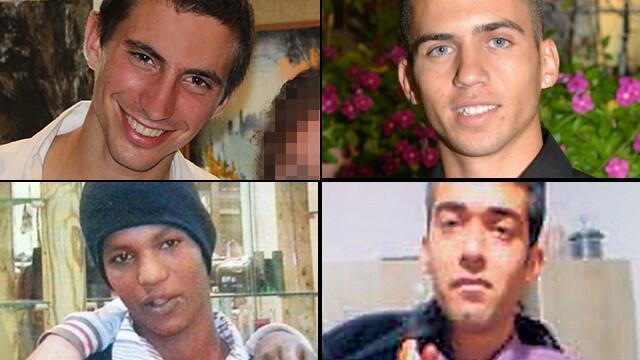

Clockwise from top left: Fallen soldiers Hadar Goldin and Oron Shaul, civilian captives Hisham al-Saeed and Avera Mengistu
Al-Haya ruled out linking Gaza’s reconstruction to Hamas’ release of two Israeli civilians and the remains of two Israeli soldiers killed in the 2014 Gaza war.
Instead, the terror group is likely to demand the release of a large number of Palestinian prisoners held by Israel.
Sinwar said Monday that the terror group was ready for "immediate negotiations" to reach a prisoner exchange with Israel. But, reiterating al-Haya's comments, he also refused to link rehabilitation efforts in coastal enclave with any future deal on the issue.
"The matter of prisoner exchanges saw some movement during the past period, but it came to a halt due to what [Israel] went through,” Sinwar said after meeting with Kamel, alluding to Israel's ongoing political turmoil.
The Egyptian-brokered truce has held but did not address any of the underlying issues of the Israeli-Palestinian conflict. Israel and Hamas have fought four wars since 2008.


